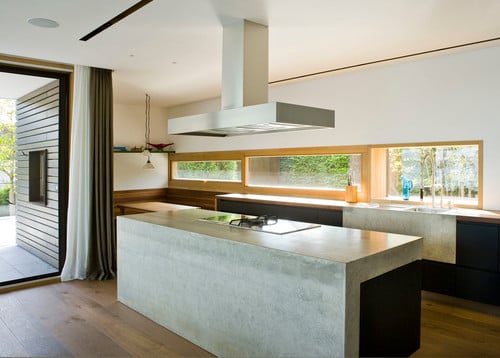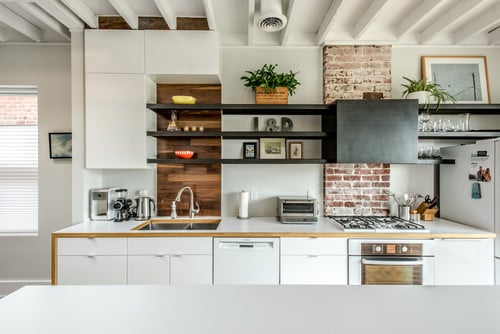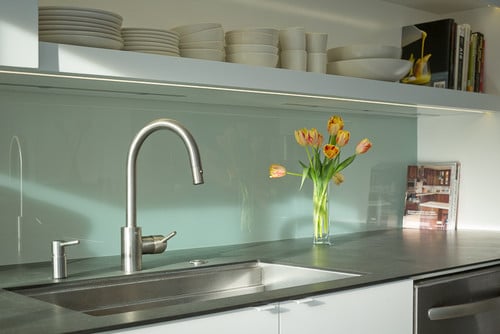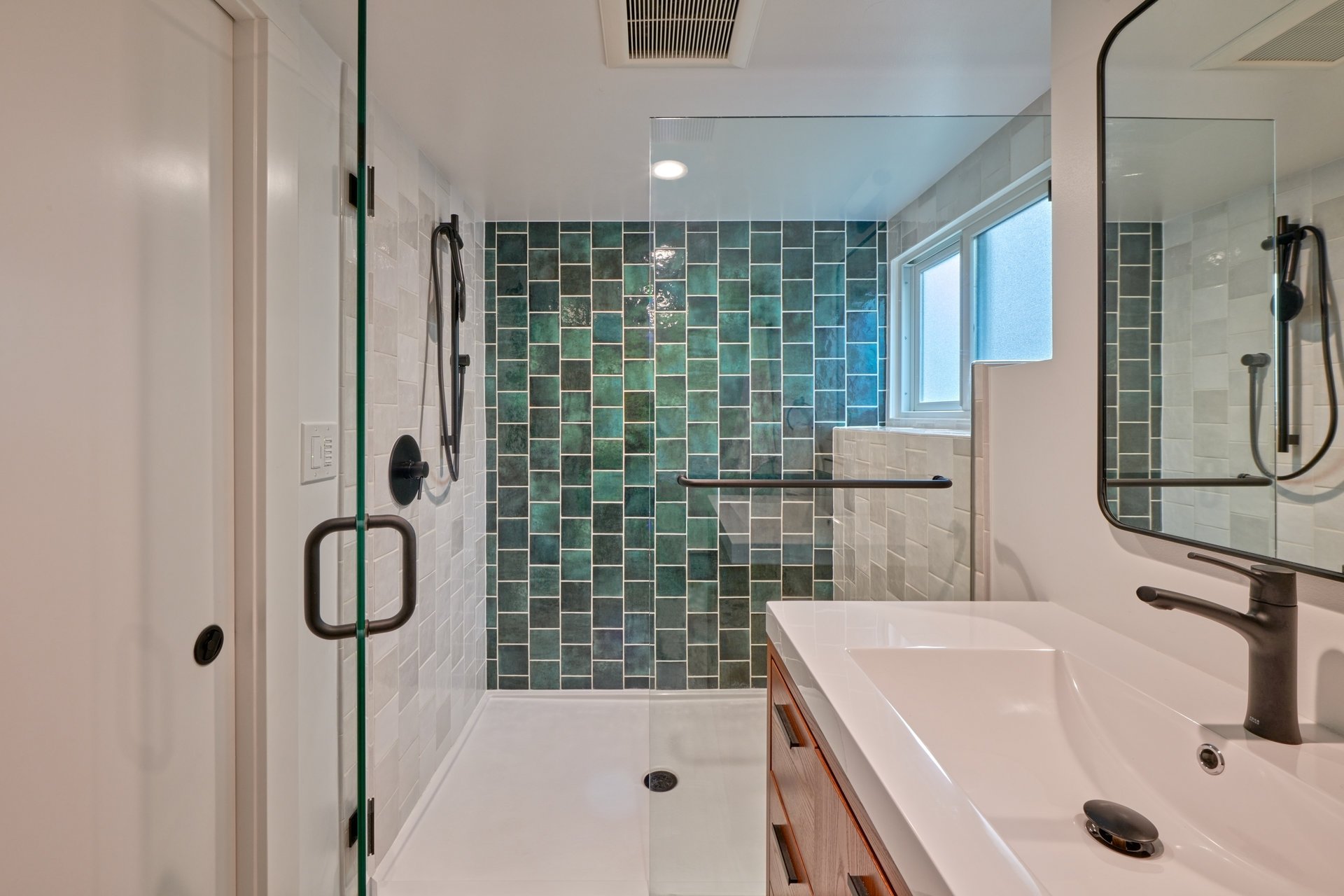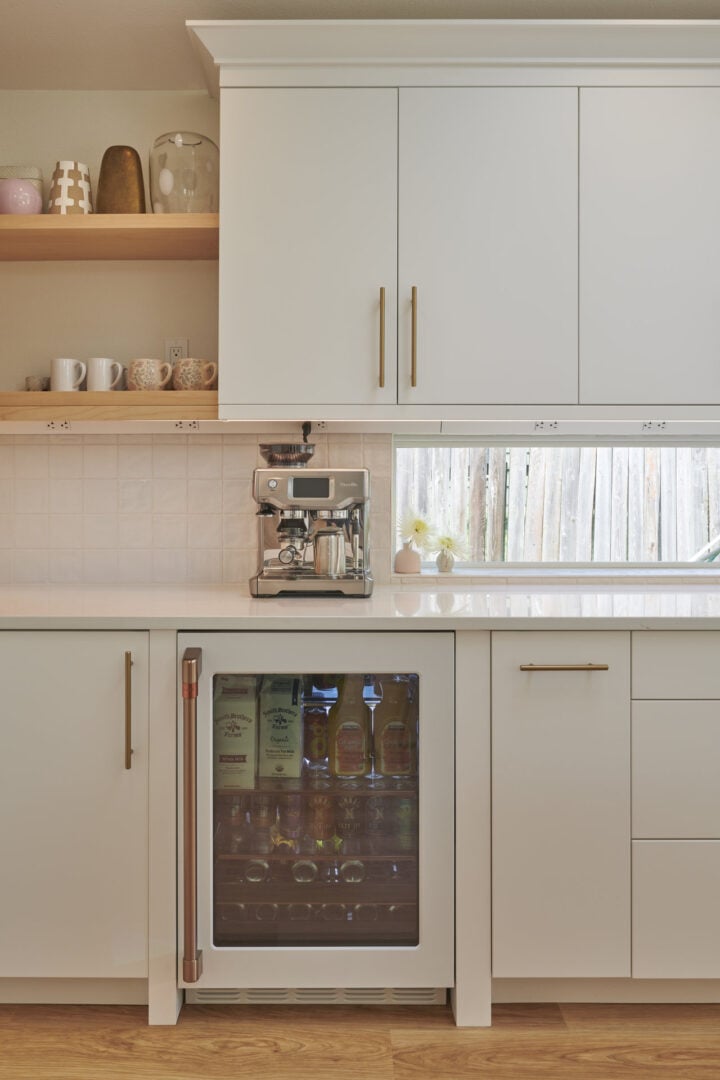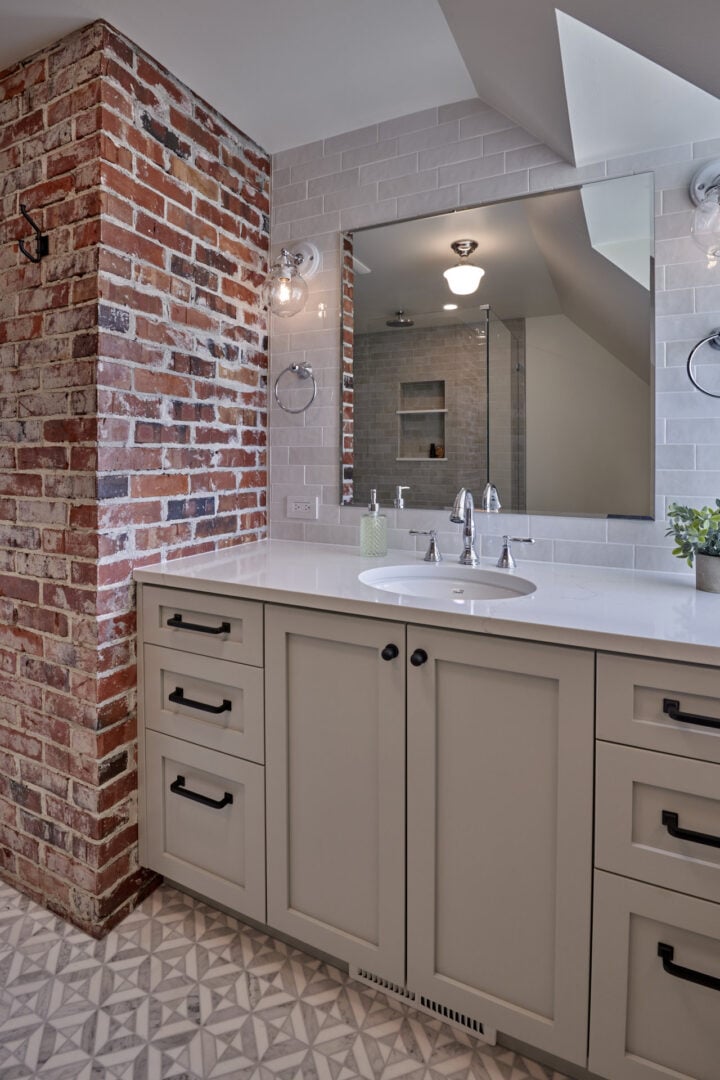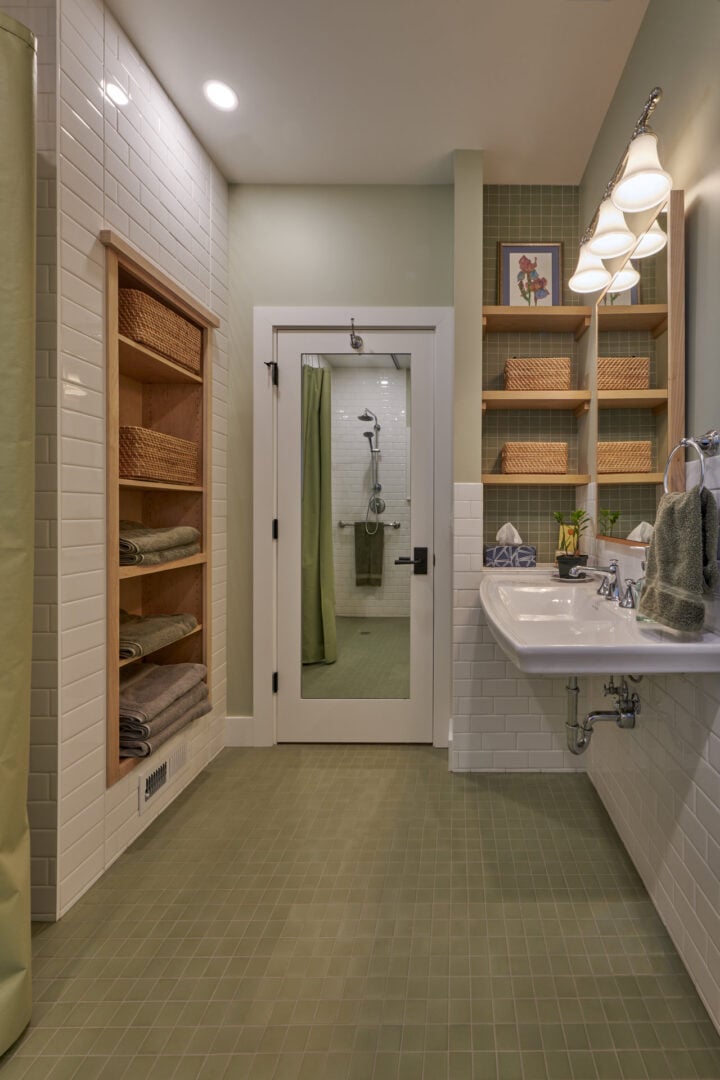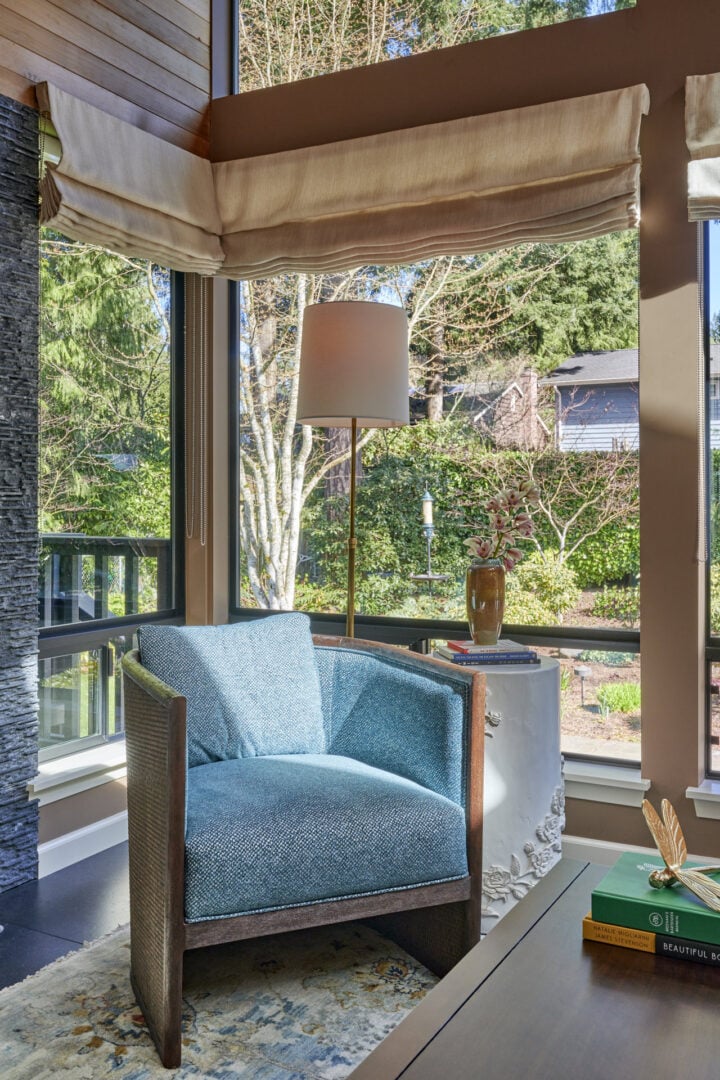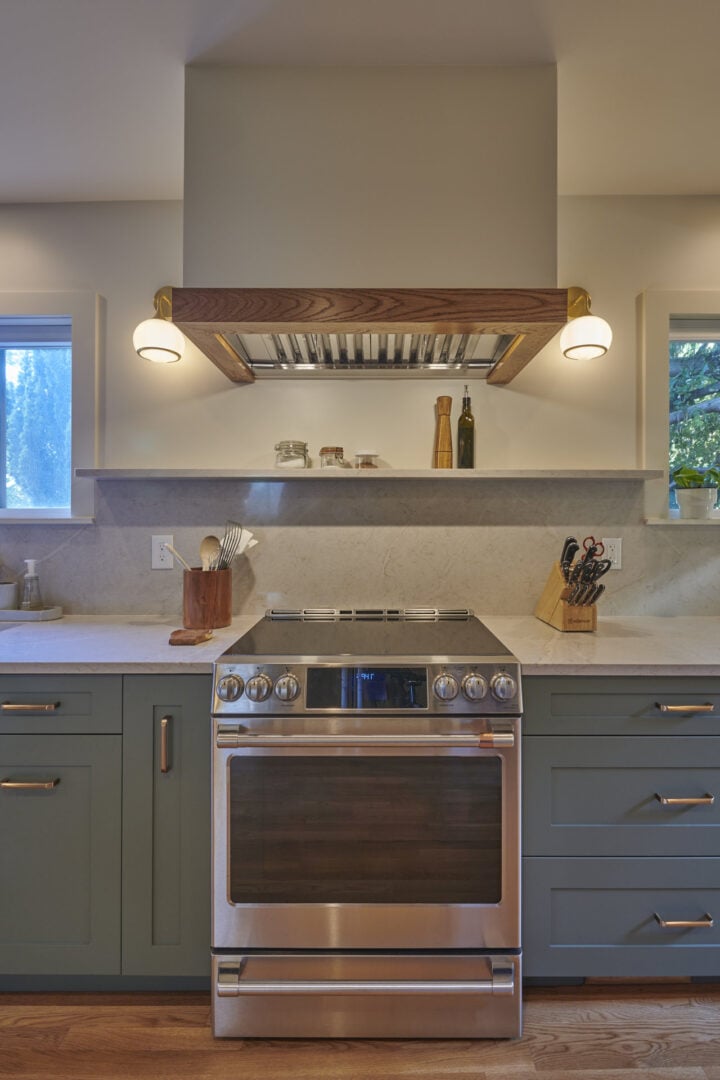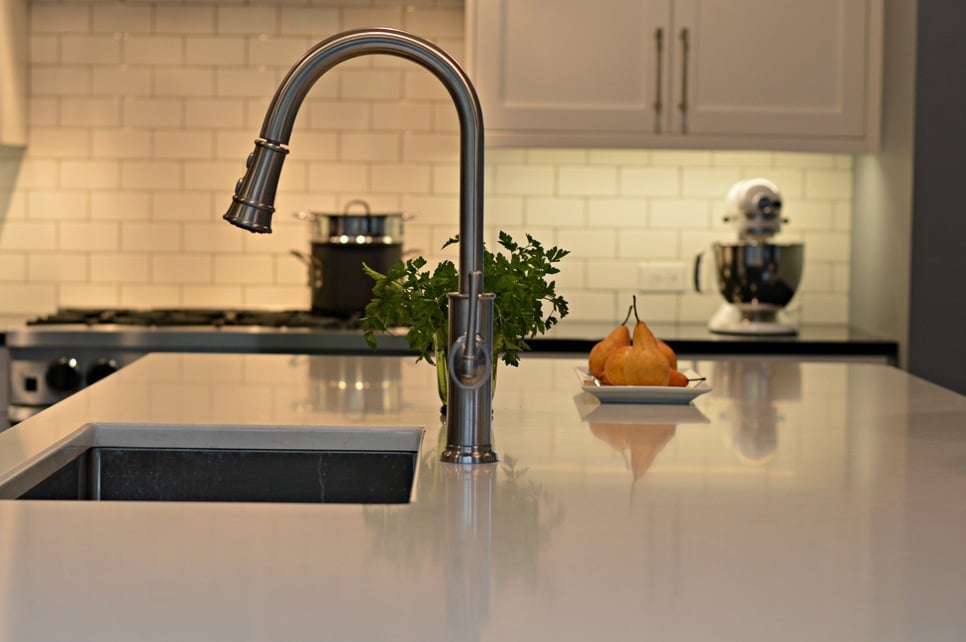
New countertops are expensive, so you expect them to last a long time. If you are remodeling your kitchen, your countertops will be the most costly material you pick out, surpassed only by your cabinetry package. You’ll see them every day, prepare food on them, and need to keep them in good condition. Aesthetics and price are important considerations, but don’t forget long-term durability and maintenance requirements when choosing the right materials. Read on to find out how the most popular materials compare.
Quartz
According to recent surveys, quartz countertops have finally surpassed natural granite in popularity. Also called manufactured stone, this material consists of ground up quartz (a natural mineral) that is bound together with resin and then molded into slabs. These days, more than 90% of our clients choose solid-surface quartz countertops because of the durability and easy maintenance. In recent years, the choice in colors and patterns has exploded. Quartz is available that mimics many natural stone slabs as well as many unique colors and patterns.
Pros
- Resistant to heat, scratching, and stains
- Many color and pattern choices available
- Nonporous surface does not require sealing
Cons
- Some quartz may slightly be less resistant to very high heat
- May lack the unique patterns of natural stone
SEE ALSO: Quartz Vs. Granite: The Complete Guide [Euro Marble]
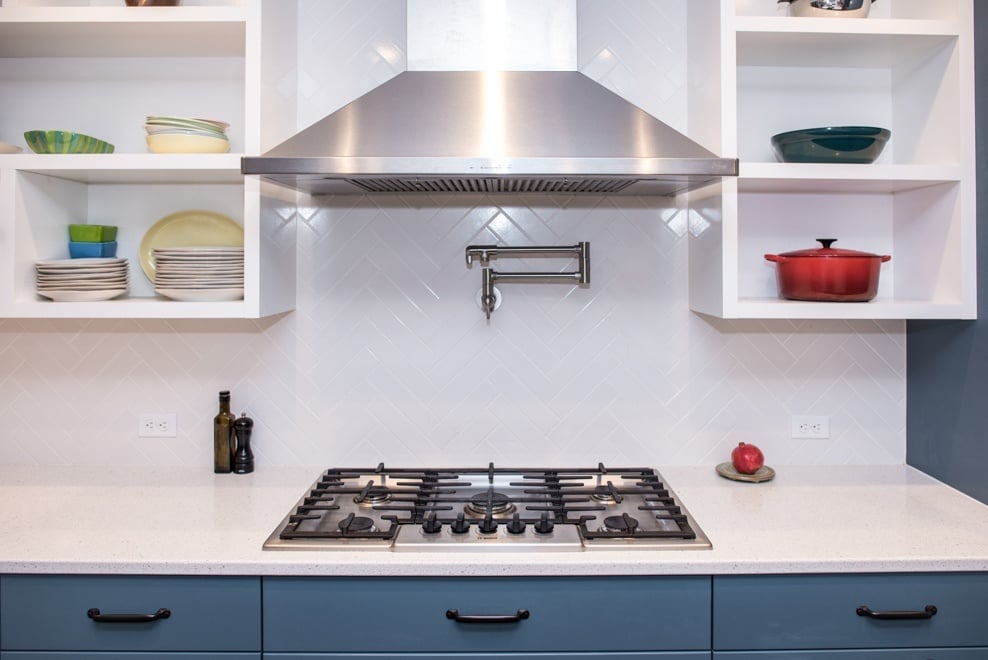
Above: A Seattle kitchen with white quartz countertops. See more of this project.
Quartzite
This material is often confused for quartz, but unlike that engineered material, quartzite is a quarried natural stone.
Pros
- Extremely hard, even more so than quartz
- Variable pattern and coloring from the geologic forces that formed it
Cons
- Depending on the quality of the slab, it can be pricey
- Slightly more prone to denting and chipping than quartz
- Designs that require complex cuts can be expensive
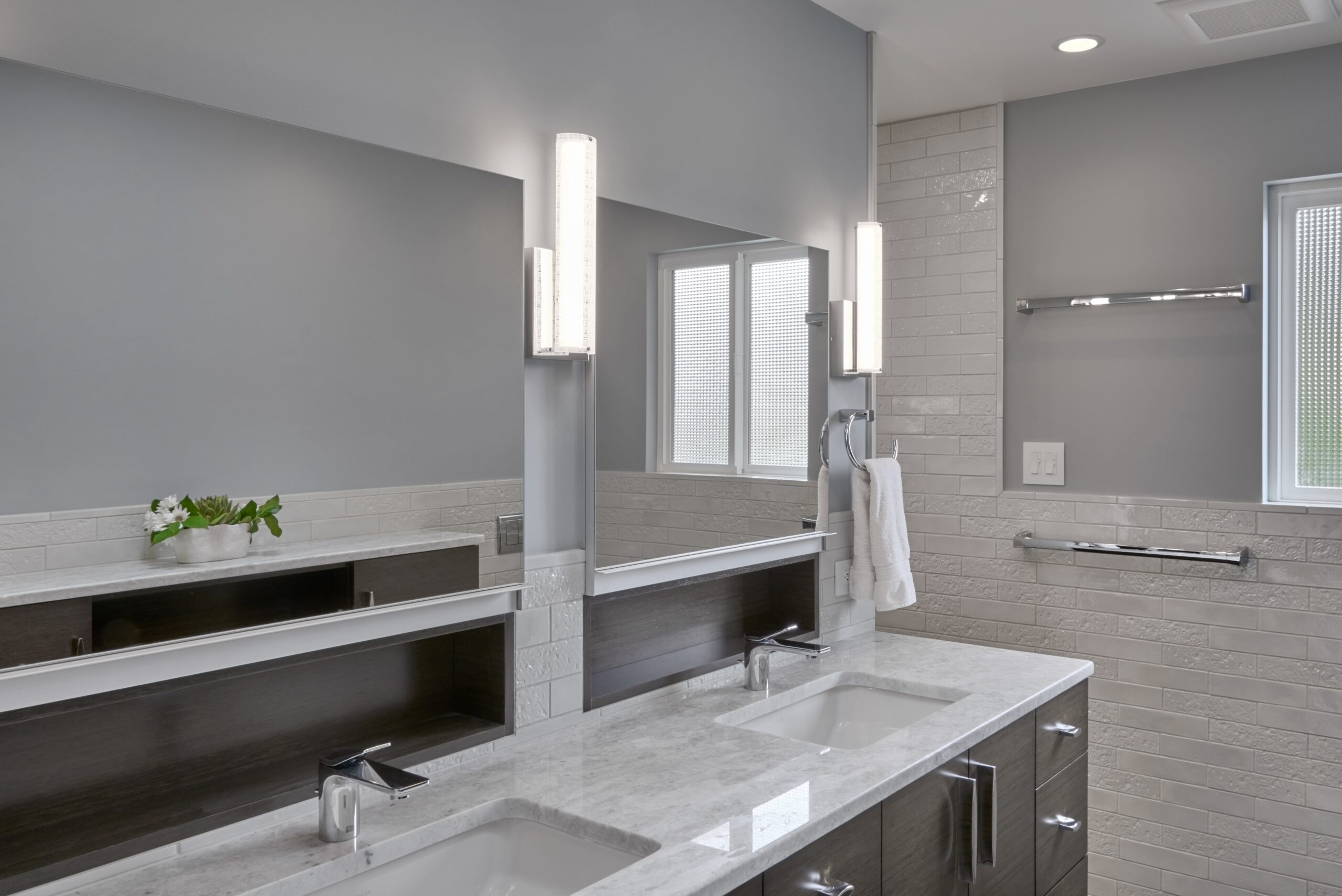
Above: Pental Princess White Quartzite in a Mercer Island master bathroom.
Granite pros and cons
Granite is now the second-most-popular countertop choice. It is available in a wide range of colors and natural patterns.
Pros
- Each slab is unique
- Extremely durable, resistant to scratching, heat, and stains (when properly sealed)
Cons
- Prone to chipping
- Must be resealed periodically
- May emit small amounts of radon, a carcinogen
SEE ALSO: Natural and Manufactured Countertops: What’s the Difference?
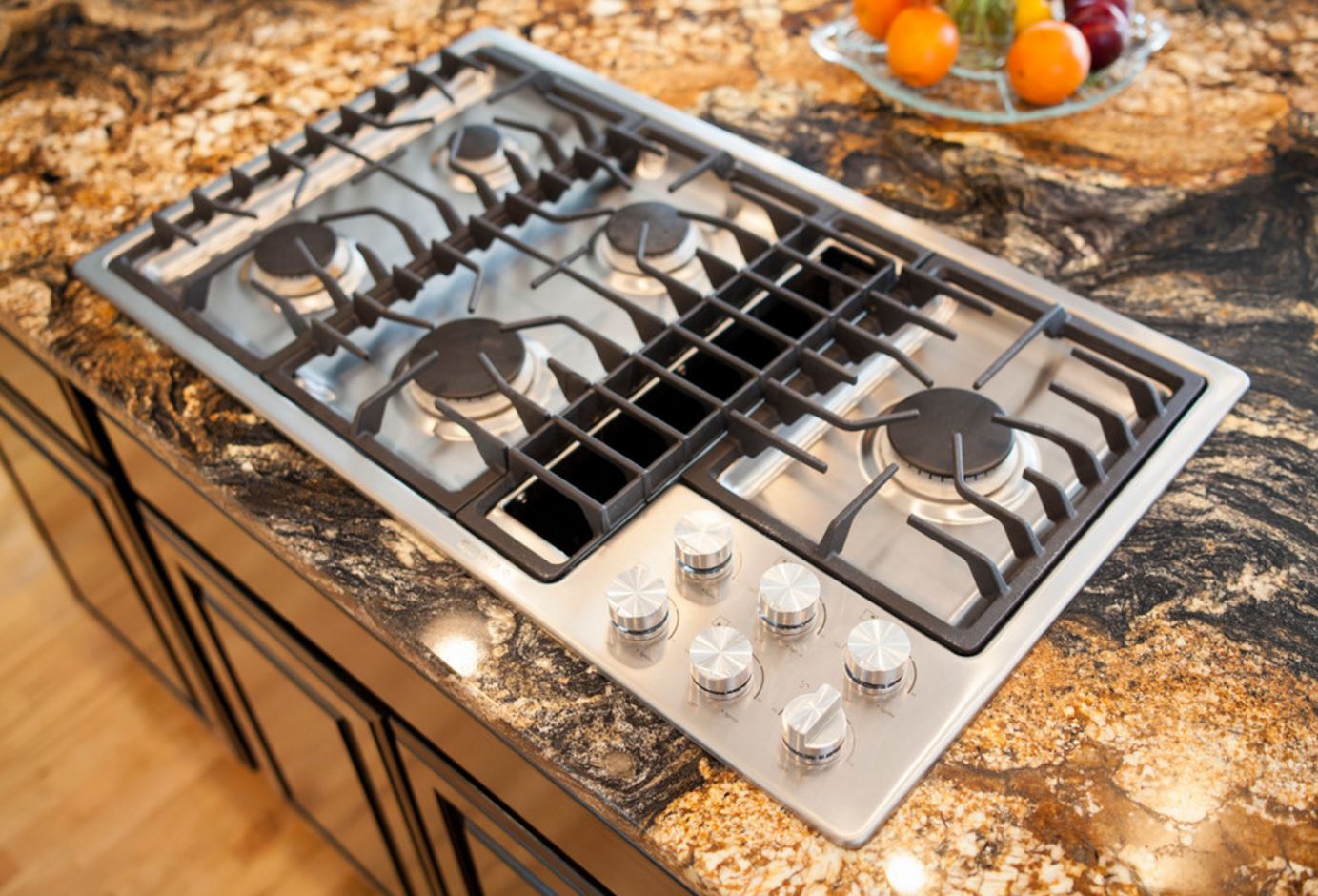
Above: Granite countertop by Pental Surfaces.
Soapstone countertops
Soapstone lends a beautiful, warm look to a kitchen, with colors that range from almost solid white to charcoal gray, with lots of marbling. Personally, I love how light-gray soapstone weathers into a beautiful patina.
Pros
- Easy to clean non-porous surface
- Resists acids
- Scratches can be repaired with a bit of sandpaper and mineral oil
Cons
- Scratches and mars easily, especially if the slab you choose has a higher talc content
- Prone to chipping

Above: Natural soapstone slab.
Marble pros and cons
This classic quarried stone has been a popular choice for kitchen countertops for ages. It traditional good looks add a touch of formality to a room.
Pros
- Remains cool to the touch and is great for working with pastry
- Honed marble can make scratches and stains less obvious
- Prices vary widely but common Carrara marble can be one of the less expensive stone
Cons
- Prone to etching from acidic foods
- Scratches easily
- Can be stained by fruits, wines, etc.
![]()
Above: Marble slab with pronounced veining.
Butcher Block
The timeless look of butcherblock countertops is coming back in a big way. As a warm, inviting material, wood certainly has its charm, but you also have to consider its drawbacks.
Pros
- One of the least costly choices
- Can be refinished to look new
- One of the few materials that can be installed by homeowners
Cons
- Prone to scratching, denting, burning, and staining
- Porous surface is sensitive to liquids
- Must be sealed frequently
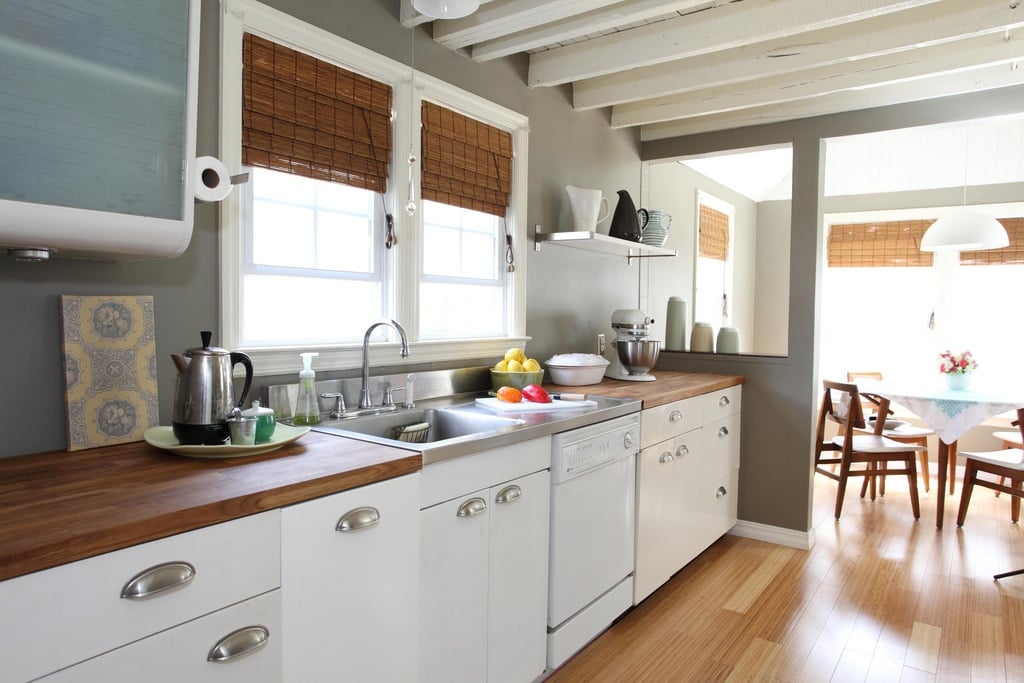
Above: Oiled butcher block countertops lend a warm feel to this vintage kitchen.
Concrete countertops
You can achieve a wide variety of looks with concrete, from industrial to artistic.
Pros
- Pigments and stains can achieve nearly any shade you desire
- Resistant to heat and scratching
Cons
- Must be resealed periodically
- Can be stained by juice, oil, wine, and other liquids
- Custom concrete work can be expensive
Laminate
Laminate kitchen countertops have fallen out of favor from their boomerang-patterned heyday in the 1950s, but there are still reasons to consider this inexpensive option.
Pros
- Among the least expensive options
- Easy to install and can be changed frequently
- A wide variety of colors and patterns are available
Cons
- Can easily be burned, melted, and scratched
- Probably not a good investment if you plan to sell your home
Above: Photo by 510_Architects
Paper Composite
This eco-friendly solid surface consists of many layers of recycled paper pressed together and bound with a resin. Paperstone and Richlite are two popular brands.
Pros
- Has the look and feel of soft stone
- Can be cut and shaped easily
- Impervious to water and can be used indoors and outdoors
- Surface scratches and scorch marks can be sanded out
- Less expensive
Cons
- Must be oiled yearly
- Can be burned by hot pans
- Will develop a patina over time
Above: Photo by building Lab, inc.
Corian
Corian and other brands of solid-surface countertops are made with polymer resins (plastic), sometimes mixed with sand. Although they have been somewhat eclipsed by quartz, solid-surface can still be a solid choice.
Pros
- Available in many colors, including bright hues
- Nonporous surface resists stains and is easy to clean
- Seamless in appearance
Cons
- Do not mimic natural materials as well as other manufactured countertop products
- Prone to scratching, denting, and burning
- Can’t be polished to a glossy finish
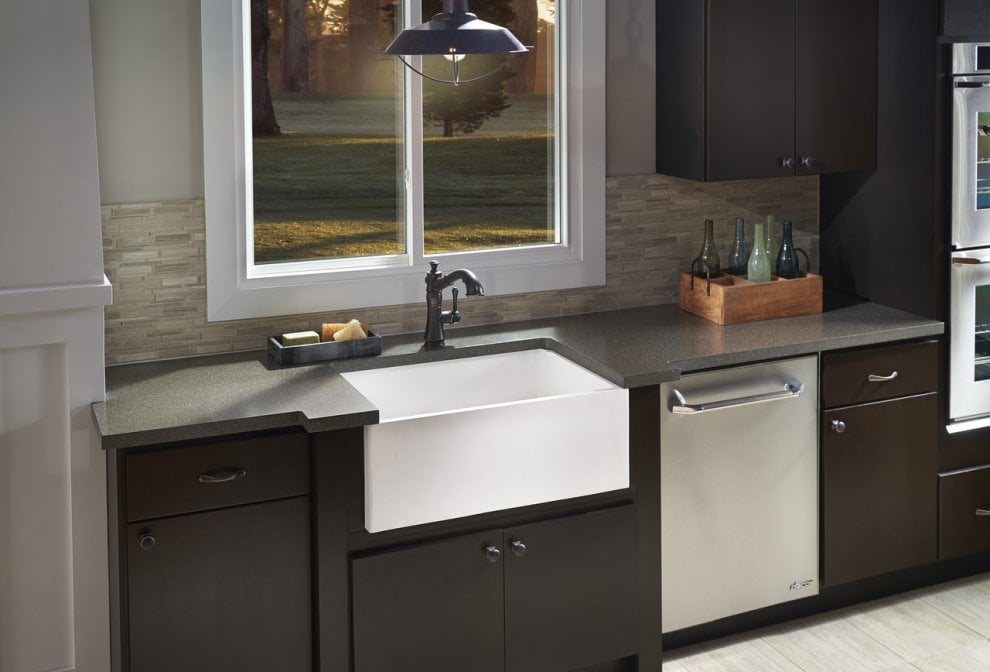
Above: Corian countertop Deep Bedrock with Corian Farmsink Bold.
Porcelain
Only recently gaining in popularity, porcelain countertops such as Dekton and Neolith are a super-durable choice.
Pros
- Even stronger than granite
- Can be used outdoors because they don’t contain resin
- Heat and stain resistant
- Recyclable
Cons
- Blunt force, like a heavy pan falling from a high shelf, could crack them
- Limited edge profile options
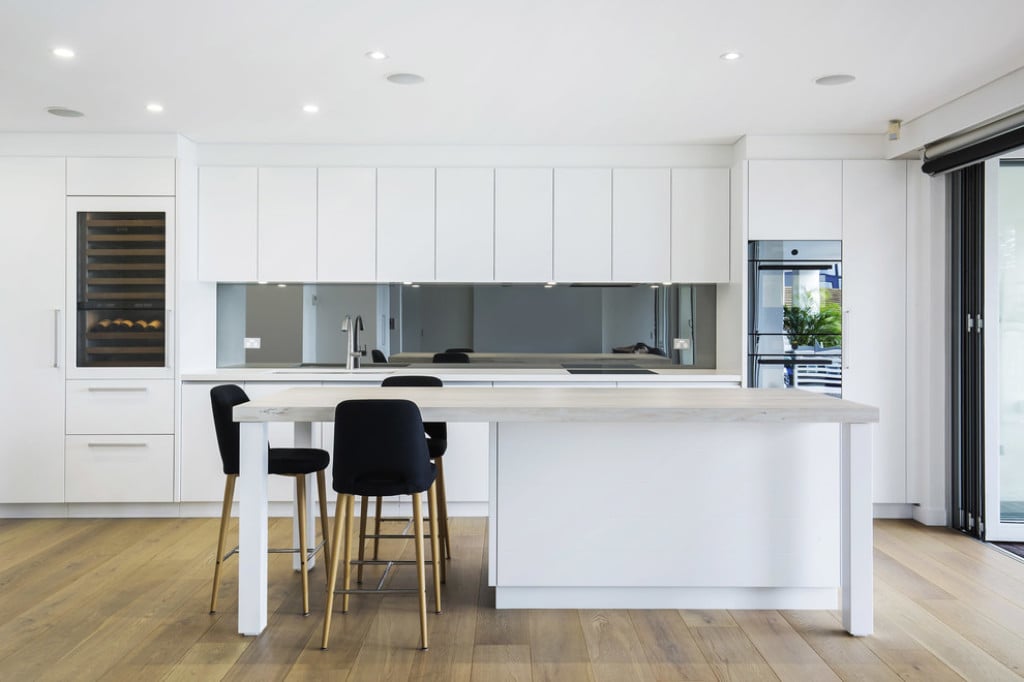
Above: Modern kitchen with Dekton countertops.
Which countertop material is right for you?
Ultimately, your selection of a countertop material comes down to personal preference and priorities. The important thing is to look beyond the pretty surfaces and know the pros and cons of each material before making your decision. After all, you may be living with your countertops for many years, even decades. I hope this introduction will be a good jumping off point for your research and that you settle on a material that you will absolutely love. If you would like to start a discussion about a home remodel or if you just have questions, please contact us. We are always happy to try to be of service.
